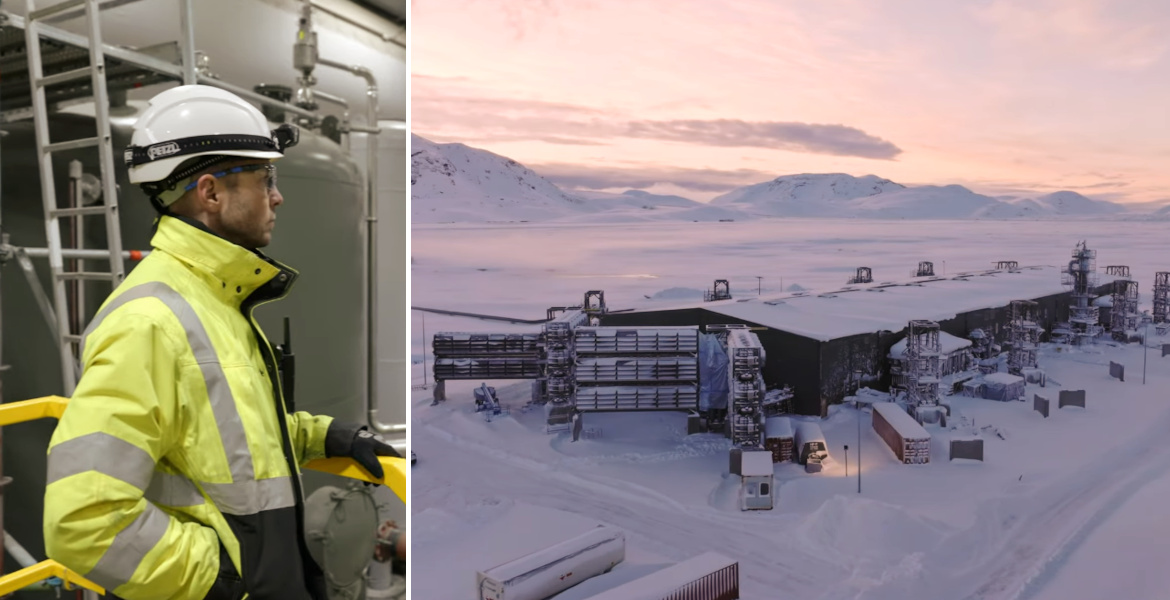In Sweden there exists an electrified road for Electric Vehicles (EVs) to charge while driving, see endnote i. The 2 km stretch of road is the world’s first of its kind, and an expansion of a further 3,000 km of electric road by 2045 is planned. It all sounds rather cool and futuristic, and I am reminded of a song lyric from the 1980s, the singer Eddie Grant sang “we’re gonna rock onto Electric Avenue”.

However, let us consider whether these expensive EVs are actually environmentally friendly or are yet another mega-corporate marketing scam?
This article demonstrates that the latter is the case. The reality is that the misled environmentalists buying these cars are suckers for mega-corporate advertising, ignorantly proud of their so-called low-carbon eco-cars. Apparently, unaware that the manufacture of millions of electric car batteries, requires huge mining operations to acquire and refine large quantities of rare earth metals, such as lithium, rhodium and cobalt; that these metals have to be mined out of the ground using machinery which is powered by carbon-emitting vehicles powered by diesel or petrol; and importantly, that the mining and refining processes can cause significant and extensive pollution to land, air and water systems, for example in rural China and Mongolia, see endnote ii. Unlike the fake manmade climate change agenda, these are real environmental problems.
Below is a picture of a lithium leach field. This is what your EV batteries are made of. It is so neuro-toxic that a bird landing on this stuff dies in minutes. Take a guess what it does to your nervous system? Pat yourself on the back for saving the environment.

Furthermore, the push to end gasoline or diesel transport by 2035 in favor of e-vehicles is based on a lie as the lithium-ion battery-powered vehicles have a total “carbon footprint” when the effects of mining lithium and producing all parts are included, that is worse than diesel autos.
Furthermore, electric cars are still driven by electricity produced from fossil fuels and will most likely continue to be. Despite decades of government subsidies wind power provides less than 5% of the world’s energy, and solar just 1%. The use of electricity to charge vehicles and devices is also an extremely in-efficient use of energy, according to a study by the European Association for Battery Electric Vehicles commissioned by the European Commission (EC):
“The ‘Well-to-Tank’ energy efficiency (from the primary energy source to the electrical plug), taking into account the energy consumed by the production and distribution of the electricity, is estimated at around 37%”.
Deceptive marketing
Let us take a look at the deceptive marketing for electric vehicles. The first misleading marketing trick that millions of environmentalists fell for was the ‘hybrid’. Hybrid cars are actually gasoline powered cars with a little battery assistance and the little battery has to be charged from the gasoline engine. If the EPA-certified mileage is 55 mpg, then it is no different from a non-hybrid that achieves 55 mpg. A world 100% full of ‘hybrid’ drivers is still 100% addicted to oil.
Now consider a cleverly designed marketing pitch for electric cars by Elon Musk, Co-Founder & CEO of Tesla Motors. In an article published on the Tesla Motors website, see endnote iii, he states:
“The overarching purpose of Tesla Motors… is to help expedite the move from a mine-and-burn hydrocarbon economy towards a solar electric economy… I’d like to address two repeated arguments against electric vehicles – battery disposal and power plant emissions… the Tesla Motors Lithium-Ion cells are not classified as hazardous and are landfill safe… the battery pack can be sold to recycling companies (unsubsidized) at the end of its greater than 100,000-mile design life…
A common rebuttal to electric vehicles as a solution to carbon emissions is that they simply transfer the CO2 emissions to the power plant. The obvious counter is that one can develop grid electric power from a variety of means, many of which, like hydro, wind, geothermal, nuclear, solar, etc. involve no CO2 emissions. However, let’s assume for the moment that the electricity is generated from a hydrocarbon source like natural gas… the hands down winner is pure electric:
| Car | Energy source | CO2 content | Efficiency | CO2 emissions |
| Honda CNG | Natural gas | 14.4 g/MJ | 0.32 km/MJ | 45.0 g/km |
| Honda FCX | Natural gas-fuel cell | 14.4 g/MJ | 0.35 km/MJ | 41.1 g/km |
| Toyota Prius | Oil | 19.9 g/MJ | 0.56 km/MJ | 35.8 g/km |
| Tesla Roadster | Natural gas electric | 14.4 g/MJ | 1.14 km/MJ | 12.6 g/km |
we will be offering a modestly sized and priced solar… This system can be… set up as a carport and will generate about 50 miles per day of electricity. If you travel less than 350 miles per week, you will therefore be “energy positive” with respect to your personal transportation… you will actually be putting more energy back into the system than you consume in transportation!”
However, Elon Musk’s narrative is debunked here as he does not mention the fact that:
- The move from mine-and-burn hydrocarbon economy towards a solar electric economy in itself requires a vast expenditure of fossil-fuel energy to re-purpose the entire worldwide industrial system, as well as build vast new energy grids for wind and solar energy, etc, simply to reduce CO2 emissions. A new industrial framework which in itself will still be very polluting to land, air, and water in virtually the same ways as the old framework as it creates more and more ‘product’ to be marketed and sold, such as electric cars, which we are now incorrectly told is okay because its ‘green product’;
- The Energy Returned on Energy Invested (EROEI) for solar and wind energy is too low to be viable, and therefore to repurpose and rebuild the world energy and industrial system to de-carbonise the economy is a waste of vast amounts of fossils fuels (no wonder the sector seeks subsidies);
- The manufacture of potentially hundreds of millions of new electric cars and electric car batteries involves a continuation of widespread mining and processing of rare earth metals, such as lithium, rhodium and cobalt, which are a limited resource. The mining and processing of rare earth metals has been shown to be polluting to land, air, and water systems, such as rivers.
- If you charge the car with solar energy, you may be putting slightly more energy back into the system than you consume in ‘driving the car’. However, driving the electric car is only one small part of the entire energy consuming process from mining to manufacture to distribution, not to mention the embedded energy in the manufactured materials of a new worldwide supply-chain industrial infrastructure, including cars, factories, energy grids, windmills, photovoltaics, etc.
- And, vitally, that CO2 emissions are not the cause of climate change. This is evidenced in my books: Transcending the Climate Change Deception Toward Real Sustainability and CO2 Climate Hoax – How Bankers Hijacked the Real Environment Movement
Climate change – a natural phenomenon
I have experience in the climate and energy sector as a Science Advisor at the U.K. Government’s Department of Energy and Climate Change; and as an Environmental Affairs Officer at the United Nations (UN) in Geneva, Switzerland. At the UN I was responsible for servicing the Pollution Release and Transfer Register Protocol, a Multinational Environmental Agreement, involving the monitoring of thousands of different pollutants to land, air, and water worldwide. Real pollution exists, but the problem is not CO2. CO2 is not actually a pollutant, it is an odorless gas, it is not soot and it is not poisonous. Actually, CO2 has beneficial properties for humankind because it is a fertilizer – without sufficient CO2 plants and crops will not grow. The biology of the earth is driven by CO2. If CO2 is less than 150 ppm, almost all life on Earth will disappear.
The little ice age ended as recently as around 1800, so it is no surprise that we are now experiencing a little warming. However, this warming period will end, and we will move again to a colder phase. That is how the Earth’s climate system has behaved for billions of years.
The Climate Intelligence (CLINTEL) is an independent foundation that operates in the fields of climate change and climate policy. CLINTEL was founded in 2019 by Dutch emeritus professor of geophysics Guus Berkhout. After its launch in 2019, it published the World Climate Declaration (WCD), which has an impressive list of over 1850 signatories worldwide, including Nobel Prize laureates and leading scientists and climate experts.
I am also a signatory of the World Climate Declaration, a declaration that refutes the United Nations narrative on climate change. The reality is the climate changes naturally. Climate change is not manmade due to CO2 emissions, or cow-made due to methane emissions as the UN claim.
Resource-intensive batteries
As an example of why electric cars are fake environmentalism let us consider a Tesla model Y battery in the picture below.

It takes up all of the space under the passenger compartment of the car. To manufacture it seemingly requires about 55 kilograms weight of lithium, cobalt, nickel, and manganese, and during manufacturing about 200 kilograms of aluminum, steel and/or plastic and 50 kilograms of graphite. To obtain these is far from easy – it has been estimated that you need to mine around 35 tons of rock, cobalt minerals, nickel ore, and copper ore; and move over 200 tons of soil just to make one battery!
A Caterpillar 994A vehicle is commonly used for the earthmoving to obtain the essential minerals. It has been estimated to consume between 250 and 775 gallons of diesel in 12 hours, see endnote iv. Finally, you get a “zero emissions” car that is not zero-emissions at all in terms of manufacture; and due to the fact that EVs are still driven by electricity produced from fossil fuels and will most likely continue to be.
The cost of Tesla batteries for the Tesla car models ranges from $5,000 to $20,000. It appears that it takes seven years for an electric car to reach net-zero CO2. The average life expectancy of the batteries is 10 years. Only in the last three years would you begin to reduce your carbon footprint. Then the batteries have to be replaced and you lose all the gains you made in those three years.
Term “sustainable” hijacked decades ago
The reality should be distinguished from the lies we are all being told by the UN, the World Economic Forum and mega-corporate advertising. The word “sustainable” was hijacked decades ago, and it is now deceptively used to advance the agendas of mega-corporate financial interests who want to sell countless millions of electric cars and who couldn’t care less about the environment. Are they concerned about the polluting effects of mining and processing rare earth metals to produce tens of millions of large electric car batteries?
As detailed in my book CO2 Climate Hoax – How Bankers Hijacked the Real Environment Movement the aim of the UN and the WEF is to catapult humanity into the ‘fake-sustainable’ totalitarian arms of UN Agenda 2030 and other clever marketing plans entirely designed by the so-called corporate elites of the WEF Davos group.
Mark-Gerard Keenan
2 Source: https://www.theguardian.com/environment/2012/aug/07/china-rare-earth-village-pollution
3 The relevant article written by Elon Musk is available at: https://www.tesla.com/blog/secret-tesla-motors-master-plan-just-between-you-and-me
4 Source: https://www.heavyequipmentforums.com/threads/cat-994-fuel-consumption.94089/
Mark Gerard Keenan, is a former scientist at the UK Government Dept. of Energy and Climate Change, and at the United Nations Environment Division. He is a Research Associate of the Centre for Research on Globalization (CRG). He is author of the following books available on Amazon:
• Transcending the Climate Change Deception Toward Real Sustainability
• CO2 Climate Hoax – How Bankers Hijacked the Real Environment Movement
• Godless Fake Science
• No Worries No Virus
• Demonic Economics and the Tricks of the Bankers










